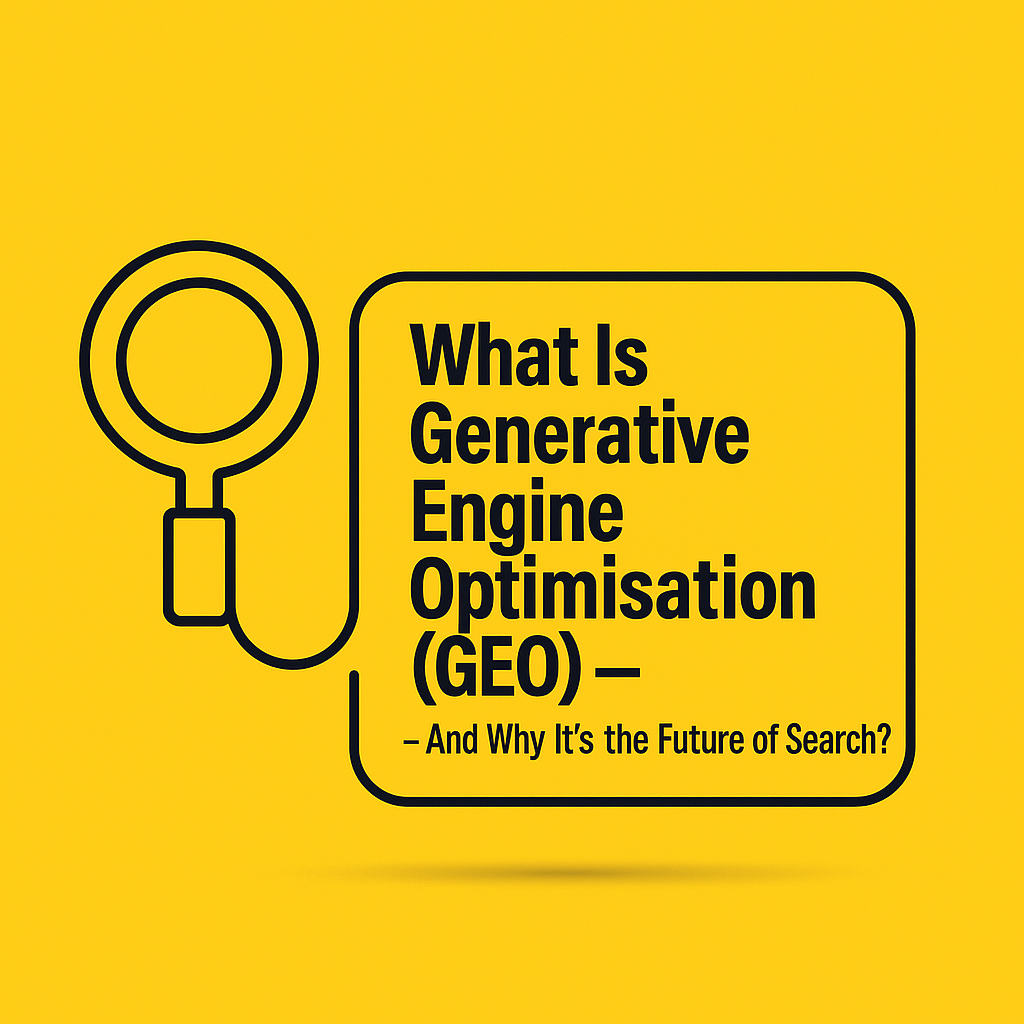What Is Generative Engine Optimisation (GEO) — And Why It’s the Future of Search?
Understanding the Shift from SEO to GEO
Search isn’t just Google anymore. With ChatGPT, Gemini, and Perplexity delivering AI-generated responses, the old rules of SEO are being rewritten.
Generative Engine Optimisation (GEO) is the strategy of structuring your content so that it’s referenced, summarised, and ranked by AI engines.
Why GEO Matters Now
70% of Gen Z already prefers AI tools over search engines for answers.
Businesses not optimised for AI summarisation risk being left out entirely.
GEO helps ensure your brand voice, messaging, and positioning are correctly captured in AI responses.
What Makes GEO Effective?
The power of GEO lies in how well your content can be broken down and reassembled into useful answers by AI systems. To succeed in generative search, your content must be:
Context-rich — Include background, insight, and meaning beyond the surface.
Clarity-driven — Avoid jargon. Use concise, plain language that machines and humans can process.
Structurally sound — Clear headers, ordered sections, semantic markup, and clean formatting help AI parse your content.
Source-ready — Be quotable. AI pulls from structured paragraphs, FAQs, and featured data points.
At DWHQ, we approach each piece of brand content — whether it’s a service page or an About section — as a potential AI-referenced source.
How GEO Differs from Traditional SEO
Enjoyed this introduction to GEO?
Follow DWHQ as we dive deeper into generative engine strategies in the next articles.
References:
Google. Search Generative Experience (SGE).
OpenAI. ChatGPT Plus and Bing Integration.
SparkToro. Zero-Click Searches.
BrightEdge. The Future of SEO in AI Search.
Deloitte. Digital Media Trends 2023.
Perplexity AI. Documentation.
You.com. About Page.


